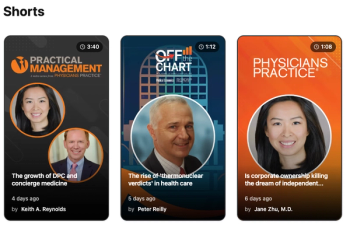
AI meets population data: Redefining health outcomes by predicting and preventing chronic illnesses
A significant benefit of investment in and adopting responsible AI is its ability to modernize and streamline outdated PA processes.
For too long, health plan utilization management programs have relied on reactive patient care methodologies and inefficient administrative workflows, resulting in suboptimal outcomes across patients' entire care journeys. Fortunately, a transformation in
With more than
Today, the application of responsible and ethical
A significant benefit of investment in and adopting responsible AI is its ability to modernize and streamline outdated PA processes. AI can serve as an early signal that a patient's care episode is commencing. In PA workflows, AI plays a critical role in surfacing an evidence-based care path tailored to the patient's diagnosis and unique needs, preventing care delays and exacerbation of illness while also improving care quality.
Significant benefits of responsible AI in healthcare include:
Early detection & diagnosis: Responsible AI excels in identifying subtle patterns in large datasets, aiding in early intervention in critical conditions like cancer.
Predictive care through advanced clinical analytics: Responsible AI anticipates disease advancement and potential complications, enabling timely interventions and efficient allocation of resources.
Personalized care paths: Responsible AI guides providers and patients to make informed care choices, focusing on individualized treatment approaches and connecting patients with suitable physicians and care programs.
Enhanced communication: Responsible AI enables seamless communication and information sharing between providers, facilitating better coordination and ensuring patients receive the right care at the right time.
AI has the potential to drive a proactive transformation in healthcare by enabling personalized care paths and enhancing treatment effectiveness. While technology continues developing, AI plays a crucial role in early disease detection and streamlining prior authorization. Harnessing the vast pool of health data, responsible AI is not just modernizing but revolutionizing healthcare, marking a significant step towards proactive, preventative, and efficient healthcare committed to individual well-being.
Samantha Roushan serves as the Senior Vice President of Clinical Transformation at
Newsletter
Optimize your practice with the Physicians Practice newsletter, offering management pearls, leadership tips, and business strategies tailored for practice administrators and physicians of any specialty.






